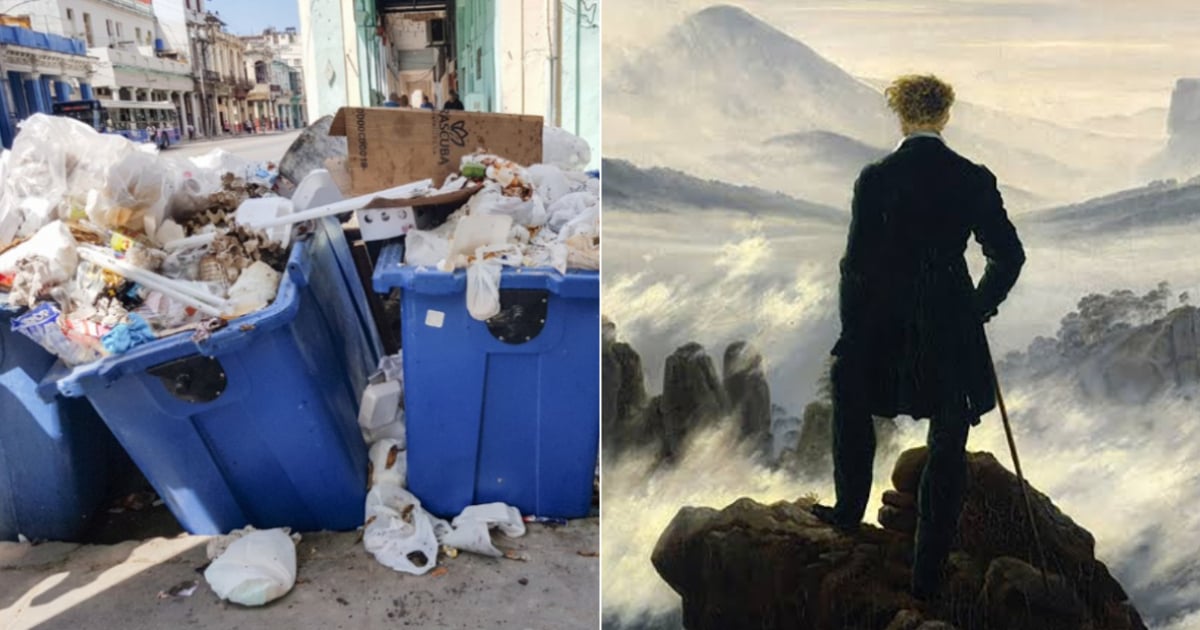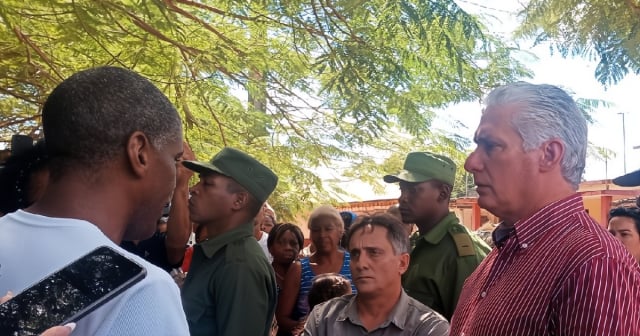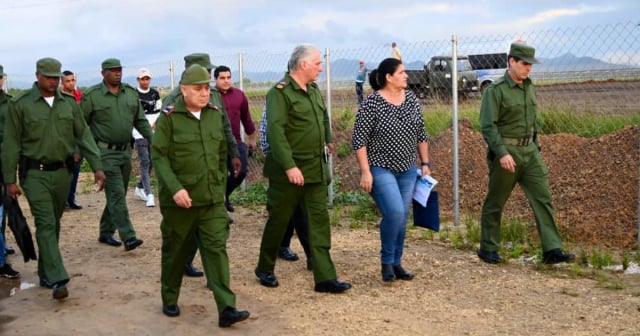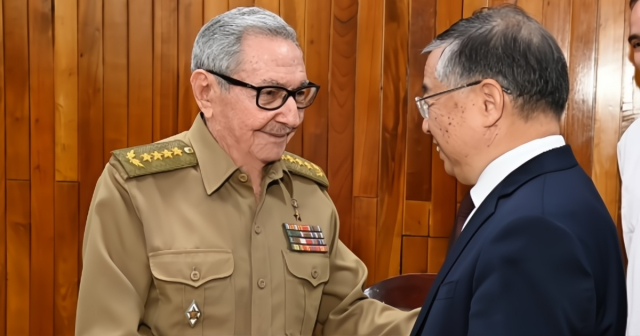
The Cuban regime has launched a crusade against "shoddy work," a new term in the political glossary of the dictatorship, with which the government aims to divert attention away from the inherent problems of its management and focus it on local entities and leaders.
This was confirmed by the intervention of leader Miguel Díaz-Canel during the Extraordinary Plenary of the Provincial Committee of the Party in Havana this Saturday, where he urged to eliminate "sloppiness" in the Cuban capital, a city suffering from irreversible deterioration and surviving half-buried among ruins, filth, sewage, and garbage dumps.
According to the official portal Cubadebate, the leader designated by General Raúl Castro "urged the need to eliminate the culture of shoddiness and to work towards creating an appealing image for Havana, with a particular emphasis on state institutions and vulnerable neighborhoods that are undergoing transformation."
The use of the phrase "culture of shoddiness" is striking, as it combines two opposing terms.
While the Royal Spanish Academy defines "culture" as "a set of ways of life and customs, knowledge, and the level of artistic, scientific, or industrial development in a given time or social group," it specifies that "sloppiness" refers to "poorly done work, roughness, or imperfection in any artifact."
According to Díaz-Canel, the shoddiness in Cuba has reached systemic levels (of superstructure, as Marxism would say) and manifests in the overall ways of life and customs, knowledge, and the level of artistic, scientific, and industrial development of the Cubans.
But it is not the fault of its "continuity," but rather that of those increasingly indifferent and poorly trained "cadres."
In January, the Cuban government approved a new Code of Ethics that its leaders were required to sign. Around the same time, Raúl Castro called for the resignation of any leaders who had become "tired" or who were not "up to the demands of the moment."
At the beginning of October, Prime Minister Manuel Marrero Cruz addressed the executives undergoing training at the State and Government's High School of Leadership about the “responsibility of leaders in guiding the implementation of the Government Projections to correct distortions and revitalize the economy.”
“The Prime Minister emphasized the need to strengthen the management of the cadres, whose performance always makes a difference. In this regard, he called for raising the level of training, as well as the expectations, discipline, and control,” reported Cubadebate.
With such a discourse, focusing on the management of " cadres," it is evident that when Díaz-Canel speaks of a "culture of shoddiness," he is not referring to the performance of his "refined and exquisite" executive team, which has left the country on the brink of disaster— a "distortion" achieved with the same mastery as the brushstrokes of Caspar David Friedrich.
With the accumulation of more than 30,000 cubic meters of trash daily in Havana, the hygiene and cleanliness of the city have created tensions among the population. To address this, Díaz-Canel launched a "comprehensive offensive" at the beginning of October and announced a strategic plan in which "each ministry will sponsor a municipality," with the aim of stabilizing the collection of solid waste.
Recovering public spaces, improving waste collection, and beautifying the streets through painting and landscaping are objectives of the perfect and admirable government plan. However, achieving them requires "enhancing the training, as well as the demands, discipline, and control" of the personnel, and "getting rid of the culture of shoddy work."
While the equivalent of three Olympic swimming pools of garbage accumulates daily in Havana, Díaz-Canel, Marrero Cruz, and their cronies are busy preparing for the literary games at the Palace.
In its halls, you can see them, lyre in hand, rhyming "the concept of unity" from Raúl Castro with "collective solutions"; or lecturing in the pantry about "the role that corresponds to the communist vanguard," or discussing "how life has shown that Cubans are prepared to overcome any danger, no matter how insurmountable it may seem."
Crowned with his laurel wreath, the appointed ruler explained this Saturday the importance of "unity, intelligence, and work," as well as "the essential role of science and innovation," along with a series of issues that the "culture of shoddy workmanship" prevents his subordinates from fully appreciating in all its revolutionary magnitude.
Between the Laocoön and the cartoons of Los Chapuceros, the leader of the so-called "continuity" is on the verge of birthing a new treaty of aesthetics while driving in his Mercedes Benz through the ruins of a city that survives amidst piles of garbage.
What do you think?
COMMENTFiled under:






